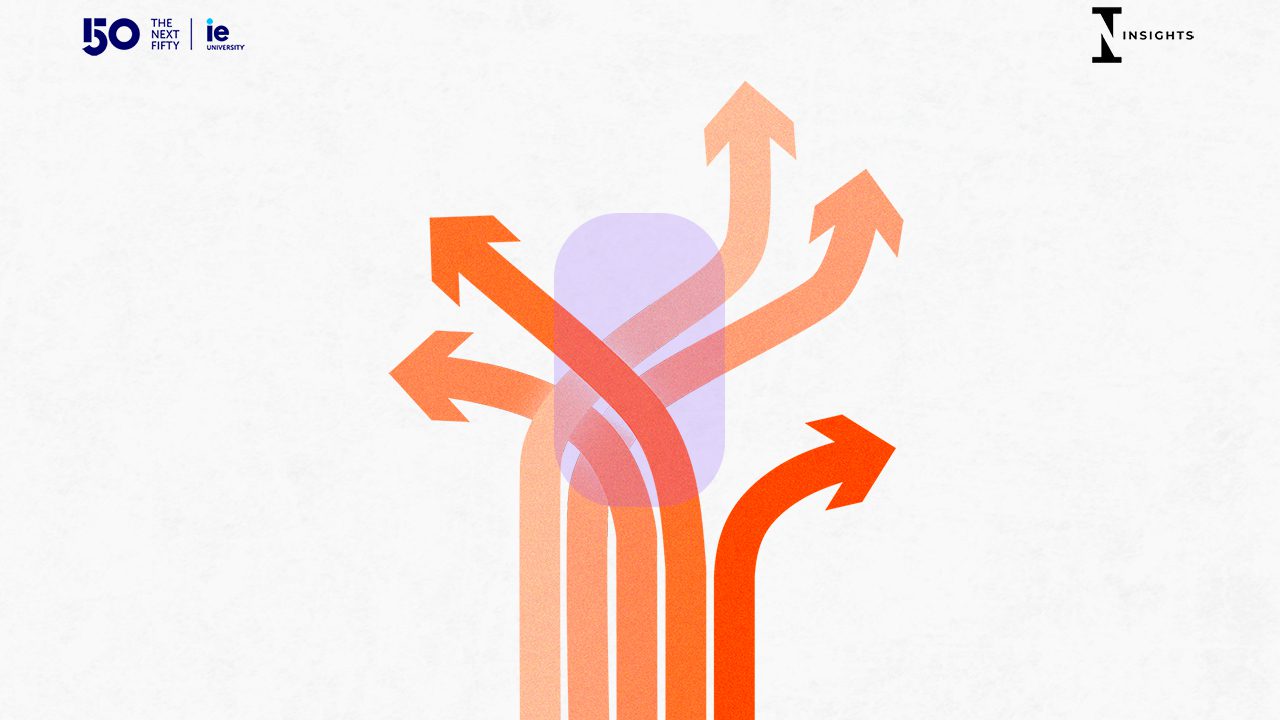Link copied
IE insights - IDEAS TO SHAPE THE FUTURE - Creativity

Marketing and the Future of Decision Making
Technology will improve our decision making in increasingly innovative ways, but the unpredictability of human emotions will remain.
Dr. Philip Kotler defined marketing as “the science and art of exploring, creating, and delivering value to satisfy the needs of a target market at a profit. Marketing identifies unfulfilled needs and desires. It defines, measures, and quantifies the size of the identified market and the profit potential.”
The future of marketing is pseudo-deterministic. In the future, it will be even more characterized by predictability – and randomness and uncertainty will be minimized. Using Kotler’s definition, there are three factors that will be differential in every marketing department of the future, with technology the key to achieving quality, reliability, and speed.
- Continued focus on the customer
Brands are nothing without customers and this will not change in the future. Thus, the customer must remain at the center of every marketing strategy. These customers will become increasingly sophisticated in their purchasing decisions, thanks to an unlimited amount of information at their fingertips allowing them to analyze products in a matter of seconds. Marketing professionals will need to stay on top of purchase drivers and ensure the brand matches them. Technologies such as machine learning will enable brands to optimize personalized customer segmentations and design customized marketing actions, for example through predictive modeling, which uses historical data to predict future customer behavior and preferences. At the same time, the IoT (Internet of Things) will become much more predominant. With more devices connected to each consumer, it will be easier to collect behavioral pattern data and thus facilitate more accurate and timely purchases.
- Satisfying experiences at every stage of the buyer’s journey
Because technology will help brands connect with clients like never before, companies will need to create tailor-made experiences that exceed expectations and generate engagement, a sense of belonging, loyalty, and a positive reputation. Furthermore, in the near future, brands will be called on to build homogenous customer experiences across online and offline ecosystems. Extended reality will likely play a leading role. Not only will clients buy into a brand for its offline experience, but they’ll invest in its alter ego in online environments like esports and metaverses. What’s more, purchasing decisions will be much more influenced by social proof. In other words, we’ll see an “Amazon Effect” across all sectors. Bad ratings and negative user reviews will make products and services disappear so that they won’t be available as purchase options for future users.
- Extremely sophisticated marketing processes
Marketing strategies help brands stand out and ensure that their products or services are the consumer’s first choice. This won’t change, but the processes that enable that differentiation will become even more decisive. Sophistication and speed will be crucial in reaching and convincing customers through tactical marketing techniques. In this case, AI-based technologies will help create and publish tailor-made content across different formats. What’s more, they’ll optimize processes related to client experience – from marketing campaigns to payment and logistics processes, customer service, and returns.
So, what does the future of marketing look like and, even more importantly, what shape will society take because of it? There will be deeper client-brand connections, experiences that delight customers at every stage of the buyer’s journey, and an increase in refined marketing actions that reinforce brand engagement and loyalty. Furthermore, as marketing becomes ever more streamlined and predictable, it will relieve us of the need to make choices.
It’s rather easy to envision a future in which all our purchases are machine assisted, and not just products and services – even the decisions we make around relationships might very well be outsourced. This leads to the question: What will happen to our decision-making autonomy?
Despite all this, I allow myself to be optimistic about what lies ahead. We will be assisted in our decision making in ways that we cannot yet begin to imagine – in a manner that goes well beyond product choices – and this will likely enable us to pursue a full and productive life. While machines and algorithms will help consumers make smarter decisions and help brands anticipate customer needs, humans will never be fully predictable. The truth is that the majority of our decisions are based on emotions. It’s our human nature. So, ultimately, the brands that will lead the way are those that can navigate that balance between technology and customer, between the predictable and the unexpected.
© IE Insights.
